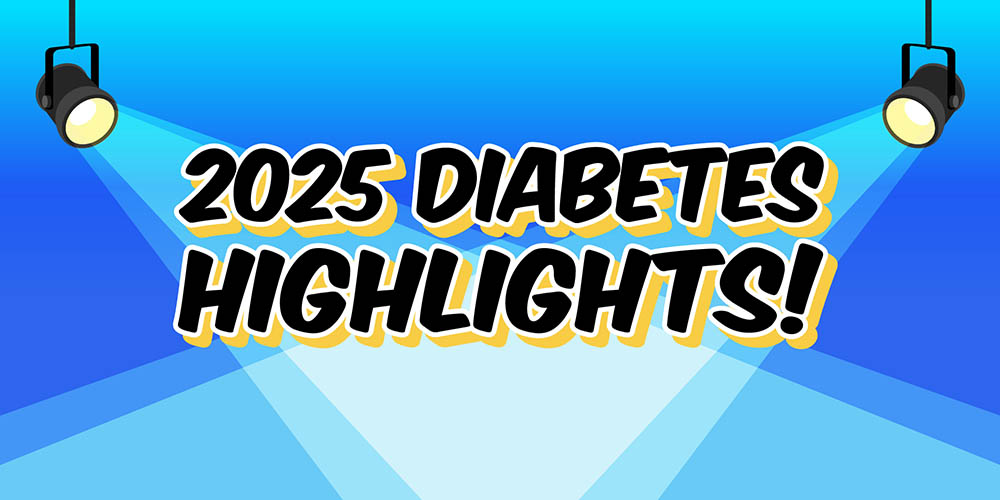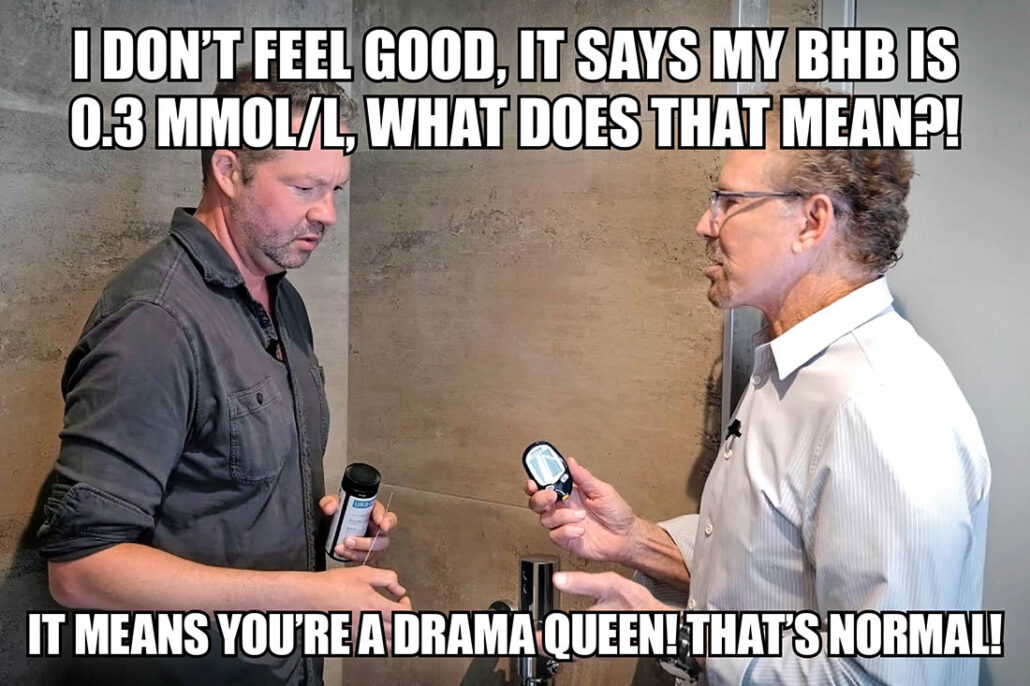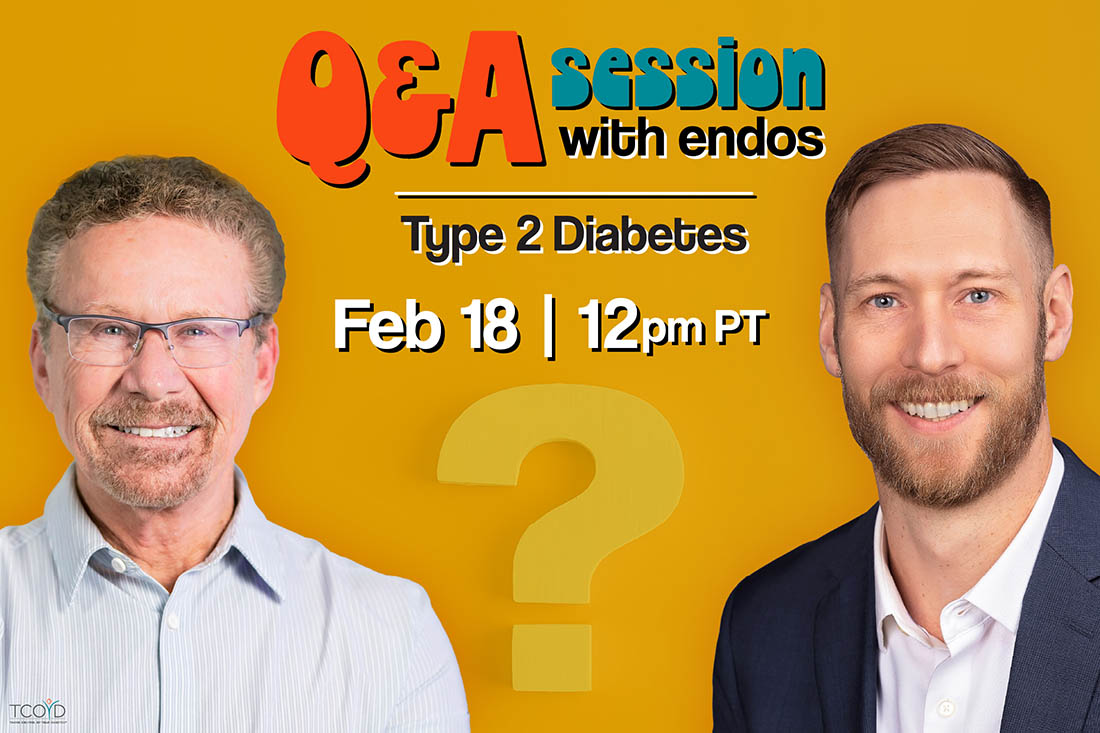
- 2025 was a breakthrough year for type 1 diabetes research – stem cells, gene therapy, and engineered islets all took major steps toward a functional cure.
- Therapies like Tzield and baricitinib noted positive clinical trial outcomes to delay or prevent a stage 3 T1D diagnosis and preserve beta cell function.
- Diabetes tech saw new pump and sensor pairings, longer-wear CGMs, and more AID approvals for type 2 diabetes, offering more choices than ever before.
Reading Time: 4 minutes
2025 was an important year for diabetes in both cutting-edge science and everyday care. From big strides toward a cure for type 1 diabetes – including exciting progress in islet cell therapy, gene therapy, and beta cell preservation – to advances in diabetes technology and new treatment therapy options, this year brought some impressive developments. We saw new pump-and-sensor integrations, expanded approvals for automated insulin delivery in type 2 diabetes, and FDA clearances for certain GLP-1 RAs to treat additional conditions that can affect people with diabetes.
Let’s dive in!
10 People with T1D Become Insulin-Independent in Vertex Clinical Trial
The big news from Vertex Pharmaceuticals this year was that their stem cell–based treatment for type 1 diabetes, zimislecel (formerly VX-880), is showing promise. In early trials, 10 out of 12 people with severe T1D became insulin-independent within a year – a huge step toward what could be a functional cure for type 1 diabetes.
The main requirement of zimislecel is that you have to take low-dose immunosuppressants for life to make sure your body doesn’t reject the new cells, but Vertex is working on genetically edited “hypoimmune” islet cell therapies that hope to solve that problem. If it has continued success, zimislecel could be the first scalable cell therapy that fundamentally changes type 1 diabetes treatment.
Sanofi’s Tzield Gets Fast-Track FDA Review for Stage 3 T1D
In October, Tzield was accepted for expedited FDA review under the Commissioner’s National Priority Voucher pilot program for Stage 3 T1D.
If approved, Tzield would become the first therapy to preserve beta-cell function in adults and kids 8 years and older who are newly diagnosed with type 1 diabetes. Until now, there have been no therapies that could change the course of type 1 diabetes after diagnosis.
Tzield works by modulating the immune system, aiming to preserve the insulin-producing beta cells in the pancreas and delay their destruction. In clinical trials, one treatment course of Tzield delayed the clinical diagnosis of type 1 diabetes for an average of two years.
Lilly to Start Phase 3 Trials to Delay T1D & Preserve Beta Cell Function
Two phase 3 studies from Lilly are moving forward to see if a medication called baricitinib could delay and/or prevent type 1 diabetes.
- The BARICADE-DELAY study will test whether baricitinib can delay or prevent the progression to clinical T1D (stage 3) in adults and children currently in stage 1 or stage 2 T1D.
- The BARICADE-PRESERVE study will explore whether baricitinib can help preserve pancreatic beta cell function in adults and kids who are newly diagnosed with stage 3a T1D.
These new trials are being launched because an earlier study called BANDIT reported preservation of C-peptide levels in new-onset stage 3 T1D participants following treatment with baricitinib. Lilly plans to begin these new studies in late 2025 and early 2026.
Kriya Preps for Human Gene Therapy Trials in Type 1 Diabetes
Kriya Therapeutics is working on a new gene therapy for type 1 diabetes called KRIYA-839. The treatment involves delivering insulin and glucokinase genes right into the muscle to help the body control blood sugar on its own, so no external insulin or immune-suppressing drugs would be needed.
In animal studies, it’s shown some pretty exciting results – better blood sugar levels, lower A1c, and reduced triglycerides, all without causing lows. Kriya recently received funding to take the next big step to start testing it in people.
Sana’s Engineered Islet Cells Avoid Immune System Destruction and Make Insulin
In August, Sana Biotechnology announced that they hit a major milestone with genetically engineered insulin-producing islet cells created to work without immunosuppressants. The first person to receive a small test dose of these cells did well, and the transplanted cells were still making insulin after 12 weeks. This first patient only received a small test dose so they still need external insulin, but the study shows that genetically modified cells can survive without immune-suppressing drugs. Sana expects to start Phase 1 clinical trials in 2026. We’re cautiously optimistic that this will work well in more than one patient.
New Medications & Indications
New drug approvals and expanded indications for many common medications are helping to change the landscape of diabetes treatment, offering broader protection for heart, kidney, and metabolic health.
Kidney and Heart Health
- KERENDIA (finerenone) was approved to treat patients with heart failure and kidney disease in type 2 diabetes. It also recently showed positive results in treating chronic kidney disease in adults with type 1 diabetes.
- The FDA approved Ozempic (semaglutide), a GLP-1 RA, to reduce the risk of worsening kidney disease and cardiovascular death in adults with type 2 diabetes and chronic kidney disease.
- Wegovy (semaglutide) was approved by the FDA for the treatment of adults with MASH with moderate to advanced liver fibrosis.
- Mounjaro demonstrated cardiovascular protection in a landmark head-to-head trial against Trulicity (an older GLP-1 RA), reinforcing its benefit for people with type 2 diabetes and heart disease.
- Rybelsus, Novo Nordisk’s oral semaglutide, was approved for cardiovascular risk reduction in adults with type 2 diabetes who are at high risk, including those who have not had a prior cardiovascular event.
Diabetes & Weight Loss
- Multiple studies in 2025 showed that Lilly’s once-daily oral GLP-1 medication orforglipron demonstrated superior glycemic control, meaningful weight loss, and cardiometabolic improvements in adults with type 2 diabetes and obesity or overweight.
Hypercortisolism
- Corcept’s new drug application for Relacorilant to treat hypercortisolism was accepted by the FDA and assigned a target action date of December 30, 2025. Hypercortisolism is a serious condition that’s often missed by healthcare providers.
Hypothyroidism
- Xeris Pharmaceuticals announced positive topline Phase 2 results for XP‑8121, their once‑weekly subcutaneous levothyroxine formulation using the XeriSol™ platform to treat hypothyroidism.
Weekly Basal Insulin and Inhaled Insulin
- Novo Nordisk resubmitted Awiqli to the FDA with the potential to be the first once-weekly basal insulin treatment for adults with type 2 diabetes.
- MannKind announced that the FDA agreed to review its application to allow Afrezza inhaled insulin to be used in kids and teens ages 4 to 17 who have diabetes (type 1 or type 2). The FDA is expected to make a decision by May 29, 2026.
Technology News: New Partnerships and Device Updates
Pumps and sensors are teaming up like never before, giving people with diabetes more connected, customizable choices..
- Abbott’s Libre technology is the first CGM associated with reduced hospitalizations for heart complications in people with type 1 and type 2 diabetes and hypoglycemia.
- Dexcom’s G7 CGM received 15-day approval from the FDA, and launches December 1st. Dexcom’s Smart Basal, an integrated basal‐insulin titration module for type 2 diabetes in the G7 app, also received FDA clearance. Dexcom’s over-the-counter CGM Stelo now syncs with the OURA ring.
- Medtronic announced they’re going back to their old name, MiniMed, for their diabetes company. Their Simplera Sync sensor for the MiniMed 780G System was FDA approved, and the 780G system was also approved for adults 18 and over with type 2 diabetes on insulin.
- The newest insulin pump on the market, Sequel’s twiist automated insulin delivery (AID) system, had a limited launch in the U.S. on July 7. It will integrate with the FreeStyle Libre 3 Plus and the Eversense 365 CGMs.
- Tandem received FDA approval for Control IQ Plus for use in type 2 diabetes. Tandem’s t:slim X2 insulin pump was also approved for use with Lyumjev ultra-rapid acting insulin.
- Biolinq Shine was granted De Novo Classification by the FDA for the first fully autonomous, needle-free glucose sensor.
SENSORS →
Pumps/AID Systems ↓
Abbott FreeStyle Libre CGM
Dexcom G7 CGM
Eversense 365 CGM
Beta Bionics iLet
Insulet Omnipod
MiniMed 780G
Sequel twiist
Tandem
Key Takeaways
2025 made one thing clear: progress in diabetes care is still moving full speed ahead! Advances in stem cell treatments and gene therapies continue to bring us closer to a functional cure for type 1 diabetes, while new medication indications are expanding protection for the heart, kidneys, liver, and overall health. With more pump-and-sensor partnerships, personalized diabetes management is becoming easier, smarter, and more connected. We can’t wait to see what next year has in store. Don’t miss our January newsletter when we’ll reveal our predictions for 2026!
Explore our resource library and video vault, and subscribe to our monthly digital newsletter for more tips, tools, and expert guidance on how to take control of your diabetes.
Additional Resources:
- Can Type 1 Diabetes be Cured with Islet Cell Therapy?
- Tzield Shows Promise in Treating Newly Diagnosed T1D
- 3 Things We Need to Cure Type 1 Diabetes
- Mounjaro vs Ozempic: Which One Is Right for You?
- Hypercortisolism & Type 2 Diabetes: Why Diagnosis is Often Missed
- Watch a Full Review on Inhaled Insulin Afrezza



Our goal is to protect your personal health information. Please keep your questions general and do not post personal medical information here. If you have a specific question, please email events@tcoyd.org.
love this newletter – chockfull of information in 1 spot. Thank you
Appreciate it! If there’s anything in particular you’d like to know more about, feel free to email Lynne at lynne@tcoyd.org.
I’m excited about the new Dexcom G7’s 15 day run time but I’m more excited about it’s ability to direct how much basal insulin to use. I have a friend that has been struggling for years to figure it out. Her doctor doesn’t have a clue how to help her. They just give her a chart and send her home. It doesn’t work.
As doctors, we’ve been adjusting basal insulin since the beginning of time. It’s not rocket science, and your friend doesn’t need anything more than her blood sugar in the morning and a simple titration schedule. For example, if blood sugar is 140 mg/dL, increase your basal dose by 2 units, if below 90 mg/dL, subtract by 2 units, if between 90 and 140 mg/dL, no change. This is just an example, and she really needs to speak to her doctor. You can find more info on how to test your basal rate here: https://tcoyd.org/2023/06/how-to-set-and-test-your-basal-rate/ and if you or your friend would like a pdf copy of my book with more detailed info, please email Lynne at lynne@tcoyd.org and she’ll send it to you.
Thank you guys! Just discovered you and I don’t feel so alone anymore!! Thanks for being my diabuddies!!
We’re so happy to hear that – glad you found us!!
This article brilliantly spotlights 2025’s game-changing diabetes advances, from Vertex’s stem cell therapy enabling insulin independence to expanded GLP-1 RA approvals and next-gen CGM-pump integrations. The progress in beta cell preservation and gene therapy brings hope for a functional T1D cure, while tech upgrades make daily management smarter and more accessible. It’s an inspiring, informative read for anyone impacted by diabetes.
Thanks – appreciate it!